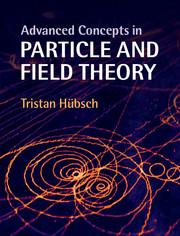Preface
Summary
I think we may yet be able to [understand atoms]. But in the process we may have to learn what the word “understanding” really means.
— Niels Bohr, cited by W. Heisenberg [267,p.41]PHYSICS MAY BE DEFINED AS THE DISCIPLINE OF UNDERSTANDING NATURE. This definition is about as good as any other I can think of, although – or perhaps exactly because – much of the material in the following chapters is required even just to more precisely describe what it is we are to understand under discipline, understanding and Nature. That is, what is the nature of disciplining our understanding of something of which we ourselves are a part: Nature.
True to the meaning of the Greek original (φύσις), physics is indeed concerned with all aspects of Nature. Molecular phenomena are the objects of study in both chemistry and physics, which disciplines are separate but tightly related through quantum physics [477]. The science with which we study phenomena of continental proportions is called geology (but areology on Mars), whereas (planetary, stellar, galactic, cosmic) events that are at least a few orders of magnitude larger are labeled as astrophysics. Living things and events are the object of study in biology, but life itself and its characteristics quite probably derive from quantum physics [477]. Extending this point of view, phenomena of thought and feeling (commonly labeled as “psychology”) may well be shown to be caused and determined by definite physical processes in the brain, so that social phenomena may be regarded as the “psychology of large ensembles of people,” just as thermodynamics is the “mechanics of large ensembles of particles.”
Of course, a mere reduction of all phenomena to a common denominator achieves very little other than irking those who would rather keep up the appearance of separateness or those who insist on “irreducible wholeness.” Hoping that this has nudged the Reader to think along (or against) such sweepingly unifying avenues of human understanding of Nature, let us turn to the real focus of this tome: to the fundamental physics of elementary particles.
- Type
- Chapter
- Information
- Advanced Concepts in Particle and Field Theory , pp. xi - xviPublisher: Cambridge University PressPrint publication year: 2015

